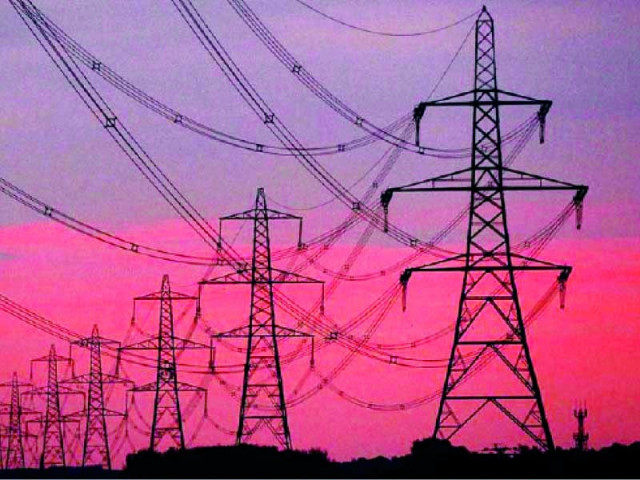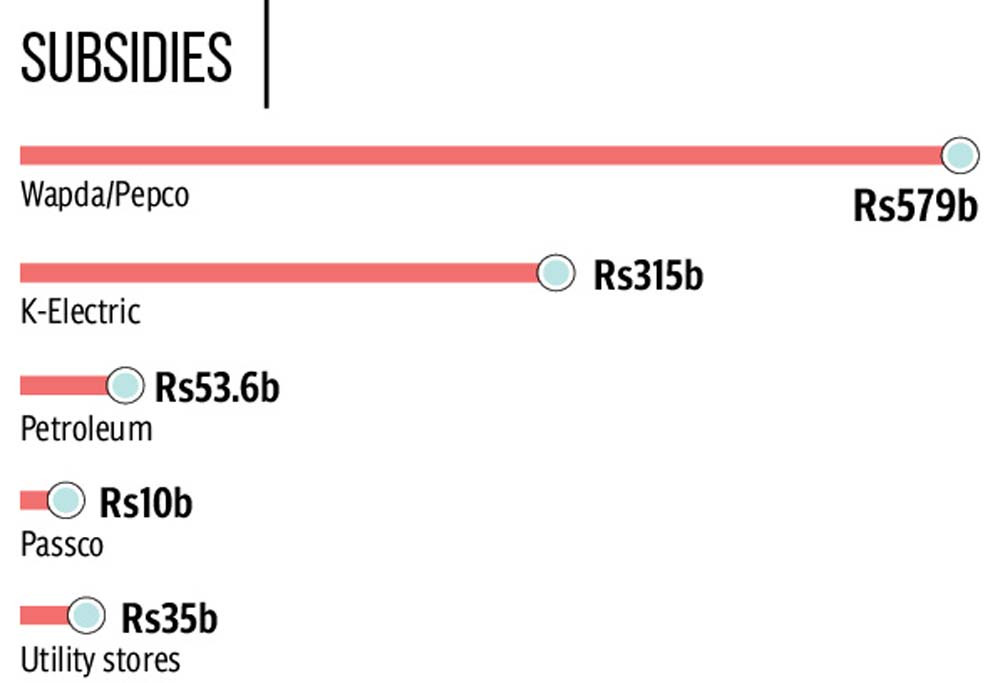Power sector to eat up major chunk of subsidies
Subsidy allocation increased to Rs1.07 trillion for next fiscal year

The government has increased the allocation for subsidies to Rs1.07 trillion in the federal budget for fiscal year 2023-24, of which a major chunk will go to the power sector.
For the outgoing fiscal year 2022-23, the government had initially earmarked Rs664 billion for subsidies, but the actual subsidies swelled to Rs1.10 trillion, according to the revised estimates, mainly due to a high amount given to the power sector.
The government released Rs180 billion in subsidy for the independent power plants (IPPs) during the current year while Rs48 billion was given under the Kisan Package, which was not part of the budget estimates earlier.
With the subsidy allocation for FY24, the government expects to provide some cushion for the consumers of electricity and petroleum, wheat operation, Mera Pakistan Mera Ghar scheme and flood rehabilitation.
However, it cannot be said with certainty whether the government will be able to keep itself within the subsidy ceiling or overshoot the target, as has happened in the outgoing year.
According to the Budget Book released on Friday, the subsidy bill has been estimated at Rs1.07 trillion for the next fiscal year, which is almost double the initial allocation for the current year. But it is slightly lower than the revised figure of Rs1.10 trillion for FY23.
In the current year, the power sector subsidy surged from the budgeted Rs455 billion to Rs677 billion primarily due to payments made to the IPPs.
For the next fiscal year, the government has earmarked Rs310.07 billion for payments to the IPPs out of the total subsidy of Rs579.07 billion for the power sector.
It has set aside Rs25 billion for the merged districts of Khyber-Pakhtunkhwa (Fata subsidy). For the inter-distribution companies’ (DISCOs) tariff differential, the subsidy has been reduced to Rs150 billion in the next fiscal year against Rs225 billion in the outgoing year.
An amount of Rs55 billion has been set aside on account of tariff differential for Azad Jammu and Kashmir (AJK) in FY24, which initially stood at just Rs3 billion in the current year. However, the allocation went up to Rs75 billion in the outgoing year, according to the revised estimates. The government has shelved the Industrial Support Package for the next financial year, which got Rs7 billion in FY23.
A subsidy of Rs20 billion had initially been allocated for the zero-rated industry during the ongoing year but according to the revised estimates it surged to Rs64 billion. Nothing has been set aside for the zero-rated industry in FY24.
The government has earmarked Rs14 billion on account of FATA subsidy arrears for the next financial year.
The subsidy for K-Electric (K-E) has been increased significantly to Rs315 billion for FY24. In the current year, initially Rs80 billion had been earmarked for K-E consumers but the actual subsidy reached Rs193 billion.
Of the total, an amount of Rs171 billion has been set aside to cover K-E’s tariff differential against the original allocation of Rs60 billion in the outgoing year. In the end, the actual subsidy came in at Rs173 billion.
An amount of Rs7 billion will be given to K-E for the Industrial Support Package, which is lower than Rs13 billion in the outgoing year.
To cover the cost of tariff differential for agricultural tube wells in Balochistan, the government has earmarked Rs10 billion against Rs7 billion this year.
Apart from the power sector, the government has allocated a subsidy of Rs53.6 billion for the petroleum consumers. Initially, it had allocated Rs71 billion for the outgoing year, but it later swelled to Rs102 billion.
The LNG sector has been given no subsidy next year, a major shift from the subsidy of Rs40 billion during the outgoing year. It came despite the fact that Pakistan State Oil (PSO) and the LNG sector were under the burden of circular debt.
Additionally, Rs12.6 billion has been allocated to clear PSO and APL’s liabilities, which is more than double the allocation of Rs6 billion for the outgoing year.
Besides, Rs30 billion has been earmarked for the domestic RLNG consumers through Sui Northern Gas Pipelines Limited, which was higher than Rs25 billion this year.

The government has allocated Rs11 billion to clear the price differential claims on petrol.
The subsidy cushion for Pakistan Agricultural Storage and Services Corporation (Passco) has been set at Rs10 billion as compared to Rs7 billion for FY23. Of this, Rs3 billion will go to Passco’s wheat operation and Rs7 billion will be given for keeping wheat stocks.
Utility Stores Corporation will receive a subsidy of Rs35 billion in the next fiscal year compared to the initial estimate of Rs17 billion for this year. According to the revised estimates, the subsidy went up to Rs30 billion in FY23.
An amount of Rs10.5 billion will be given in wheat subsidy to Gilgit-Baltistan while Rs2 billion will be released as Metro Bus subsidy. Furthermore, Rs30 billion will go to fertiliser plants and the Naya Pakistan Housing Authority will get Rs500 million. A subsidy of Rs6 billion will also be provided for urea import.
The government has allocated an additional subsidy of Rs32.6 billion to cope with floods in FY24. Initially, it had not earmarked any subsidy but provided Rs44 billion later due to the widespread damage caused by floods in the country.
Published in The Express Tribune, June 10th, 2023.
Like Business on Facebook, follow @TribuneBiz on Twitter to stay informed and join in the conversation.



















COMMENTS
Comments are moderated and generally will be posted if they are on-topic and not abusive.
For more information, please see our Comments FAQ